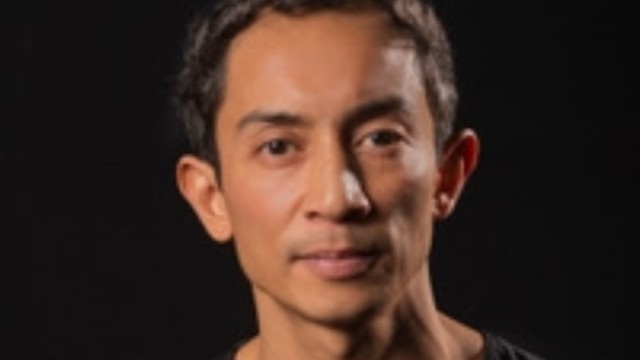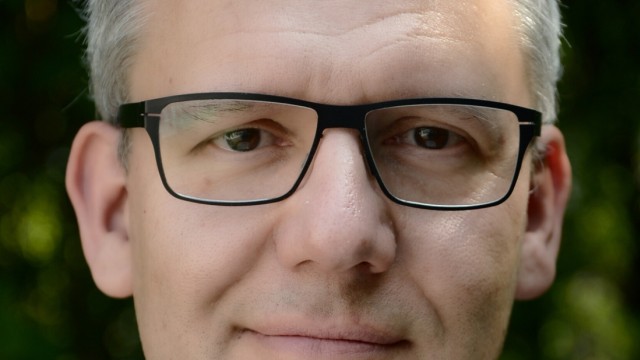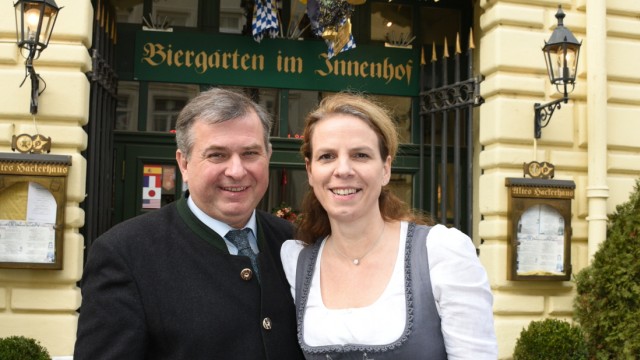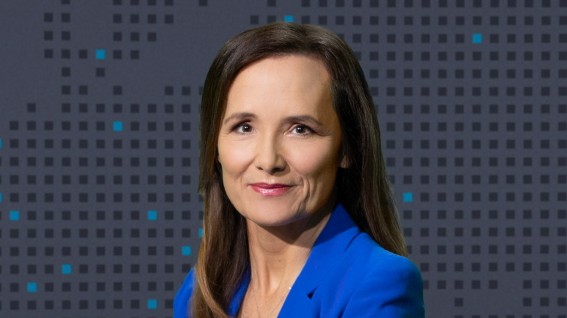In front of the camera
The journalist has been stepping up since February Mirjam Kottmann the BR24 news team and moderates the programs at 4 and 6:30 p.m. Kottmann has been dependent on a wheelchair for twelve years due to multiple sclerosis. But that doesn’t matter to most viewers, says the 49-year-old: “The only thing that matters to them is that they are well informed.” The wheelchair is there, but not the issue. That is successful inclusion. Her editorial director and moderator Andreas Bachmann also thinks so: “Mirjam Kottmann encourages many people and, together with the editorial team, sets an example of lived and uncomplicated inclusion.”
Kottmann was born in Munich and studied journalism at the Ludwig Maximilians University. She has been working at Bayerischer Rundfunk since 1997. In a news format, the Rundschau, the predecessor of BR24, she worked mainly as a reporter at home and abroad, also repeatedly supporting the ARD studios in Vienna and Rome. For a year she was heard on the radio show “Living with Disabilities”, she planned and moderated it.
Kottmann has been appearing on television as a presenter in various formats since 2018. “At the beginning I tried to hide my wheelchair when appearing in front of the camera. According to the motto: just don’t show that I have a limitation,” says Kottmann. However, she is now open about it. “Why not?” she asks. “The reactions from the audience have been consistently positive.”
In the city
Miro Craemer.
(Photo: Thomas Weinberger)
Designers Miro Craemer has been running a non-profit art location on Hans-Sachs-Straße since 2020. Exhibitions such as feminist photographic works and street art can be seen regularly in the “mim Space for Culture”. A shoemaker once worked there who had already made shoes for the English king. Now “mim Raum für Kultur” has been awarded the prize for “Galleries and Off-Spaces”. It is endowed with 7,500 euros and has been awarded by the city of Munich since 2019. According to the jury, the space strengthens the sense of community and provides creative impulses in the district.
On stage

David Russo.
(Photo: private)
The “Biennale Dance Training”, a nationwide competition, is coming to Munich for the first time. For a whole week, young dancers show off their skills, learn from renowned choreographers and discuss new developments in dance together. Spectators can take part in four public evening programs in the Muffathalle. The performances are about new role models and diversity. More than 100 dance students – from Budapest, The Hague, Taipei, Toronto and Dakar – present new choreographies and offer kaleidoscopic insights into the artistic diversity of dance training in Europe, Asia, Africa and North America.
This event is to be thanked David Russo. He is a lecturer at the Ballet Academy of the Munich University of Music and Theater and runs the Biennale with a team that includes the director of the Ballet Academy, Jan Broeckx, as well as Anna Beke, Simone Geiger-Liebreich, Isabelle Severs and as an artistic advisor Bettina Wagner-Bergelt, planned for three years. “Ideals play a fundamental, physical role in dance,” says Russo. For him, dance is more than just a performing art. It is a “human expression and a basic need, both for spectators and actors. Dance speaks a global language,” says the dancer, choreographer and dance educator. The biennial dance training runs from February 19th to 25th, with choreographies ranging from classical to hip-hop.
Information at biennale-tanzbildung.de or muffathalle.de.
In court

Andreas Wirsching.
(Photo: IFZ)
The reason for the event at the Bavarian Academy of Sciences on Wednesday, February 28th is the spectacular ruling of the Constitutional Court on the climate fund: measures that should have been financed with the planned 60 billion euros are now uncertain. Andreas Wirsching, director of the Institute for Contemporary History, professor at the LMU and academy member, will debate the influence of constitutional courts with Berlin professor Dieter Grimm. You will examine the question of the extent to which political decisions can be justified by a court.
From the Bio-Wiesn

Lorenz and Christine Stiftl.
(Photo: Catherina Hess)
Since 2021, the Nuremberg trade fair for organic food, Biofach, has been honoring so-called “lighthouse projects” that help achieve the goal of 30 percent organic content in food production by 2030. Last week, two companies that have something to do with Oktoberfest were honored at Biofach. Pichler Biofleisch from Geretsried received a prize for its plan to breed and market “organic regional Wiesnhendl” all year round. And the Volkssängerzelt Schützenlisl from Lorenz and Christine Stiftl was awarded because it works with 90 percent Bavarian organic products at the Oidn Wiesn. This would open up new marketing channels for organic products and strengthen cooperation along the value chain. “It was important to us to set an example,” said the host couple, “how both ecological and economic benefits can be achieved through creative collaborations and the use of local organic resources.”

